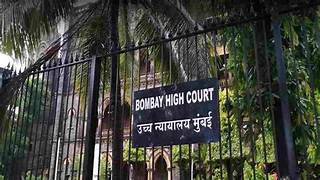


In the bustling metropolis of Mumbai, amidst the towering skyscrapers and bustling streets, lies a stark reality often overlooked – the plight of slum dwellers facing eviction after decades of residing in what they were assured was "permanent alternate accommodation." Recently, the Bombay High Court brought attention to this pressing issue, expressing its dismay at the short notice given by the Slum Rehabilitation Authority (SRA) to these original inhabitants, highlighting the urgent need for reform in the system.
In a poignant reflection of the human cost behind bureaucratic decisions, the High Court questioned how, after 18 to 20 years of residence, the SRA could deem a mere seven days sufficient to uproot entire families and households. Justice Patel, delivering the court's verdict, emphasized the intrinsic value of these individuals, asserting that they are not pawns on a chessboard to be moved at will, nor should their humanity be disregarded for the sake of expediency. The case brought before the court involved residents near Worli Dairy in Mumbai, a prime area now subject to redevelopment. Despite being initially promised "Permanent Alternate Accommodation," residents found themselves suddenly faced with eviction notices, triggering a legal battle for their rights. Advocates representing the affected parties passionately argued for intervention, seeking relief against the SRA's abrupt eviction order.
The court's scathing rebuke extended beyond the SRA to the Apex Grievance Redressal Committee (AGRC), which was notably absent when slum dwellers sought recourse. The judiciary expressed profound disappointment in the committee's lack of responsiveness, warning of consequences should their neglect persist. The AGRC's failure to address the grievances of vulnerable citizens underscored systemic deficiencies in safeguarding their rights. Moreover, the court condemned the callousness of developers who prioritized profit over compassion, citing instances where slum dwellers were coerced into vacating their homes under the guise of transit rent. The insensitivity displayed towards these individuals, treated merely as inconveniences in the path of progress, further illuminated the need for a more humane approach to urban redevelopment.
Beyond the legal intricacies of the case, the underlying narrative speaks volumes about societal priorities and the imperative for equitable development. It raises pertinent questions about the responsibility of authorities entrusted with welfare mandates, emphasizing that the welfare of citizens should supersede commercial interests. As Mumbai continues its relentless march towards modernization, it must not forsake its most vulnerable residents in the pursuit of progress. The voices of slum dwellers, often marginalized and overlooked, must be amplified and heeded in the halls of justice. The recent verdict serves as a rallying cry for a more compassionate and inclusive approach to urban planning, where the dignity and rights of every individual are upheld with unwavering resolve.

In conclusion, the Bombay High Court's resolute stance against arbitrary evictions sends a powerful message – that justice must not be a privilege reserved for the privileged few, but a fundamental right accessible to all, regardless of social or economic status. As we navigate the complexities of urban development, let us strive to build a city where empathy and justice form the cornerstone of progress.
News Articles
Other Real Estate News Articles